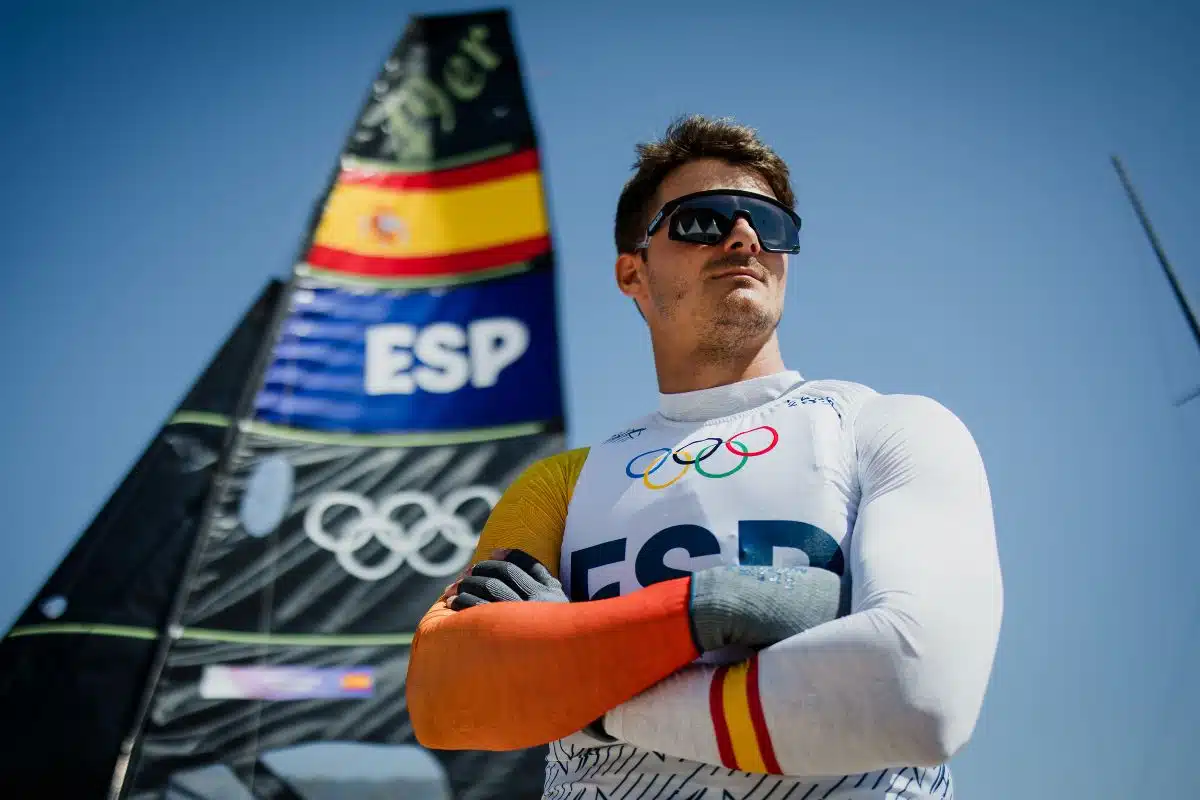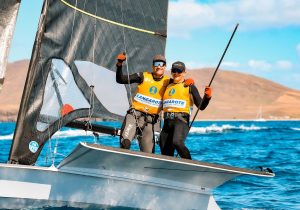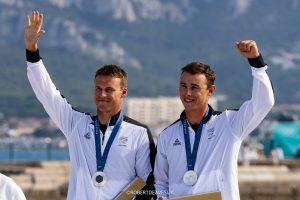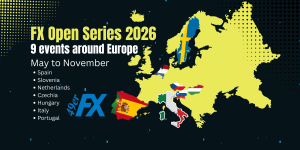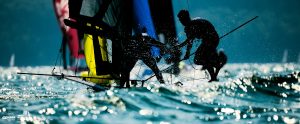Diego Botín and Florian Trittel won Olympic gold in the 49er class, cementing their place among the elite of world sailing after a flawless season. This included leading the Spanish team to victory in the SailGP circuit of flying catamarans.
Diego Botín (Madrid, 1993) is one of Spain’s greatest sailing talents. Born into a renowned family with ties in both finance and sailing, he has stood out in sports on his own merits. His father, Gonzalo Botín, has been a notable figure in amateur competitive sailing, while his uncle, Marcelino, is regarded as one of the world’s best naval designers, currently working for the Alinghi Red Bull Racing team in the America’s Cup. At 30, Diego has built an impressive career, with an Olympic gold medal from the 2024 Paris Games and a fourth-place finish in Tokyo 2020. Just a month before his Olympic triumph in the 49er alongside his inseparable partner Florian Trittel, he secured a historic victory in the SailGP catamaran circuit after an electrifying final in San Francisco against Australia and New Zealand. This young sailor from Santander continues to shine on the seas, solidifying his place as a world-class figure in sailing.
Do you get excited watching the America’s Cup on TV?
Honestly, not right now. I’ve had a long and intense season with SailGP and the Olympics. I need this break and to enjoy some time with less stress, so I’m happy to be just a spectator for now.
Is it a distant dream to think about competing in the America’s Cup?
It is, until it becomes possible. Right now, it’s very difficult. We all dream of a Spanish challenge, but many things need to align. I honestly believe Spain has the potential for it, but I don’t see how to make it happen right now.
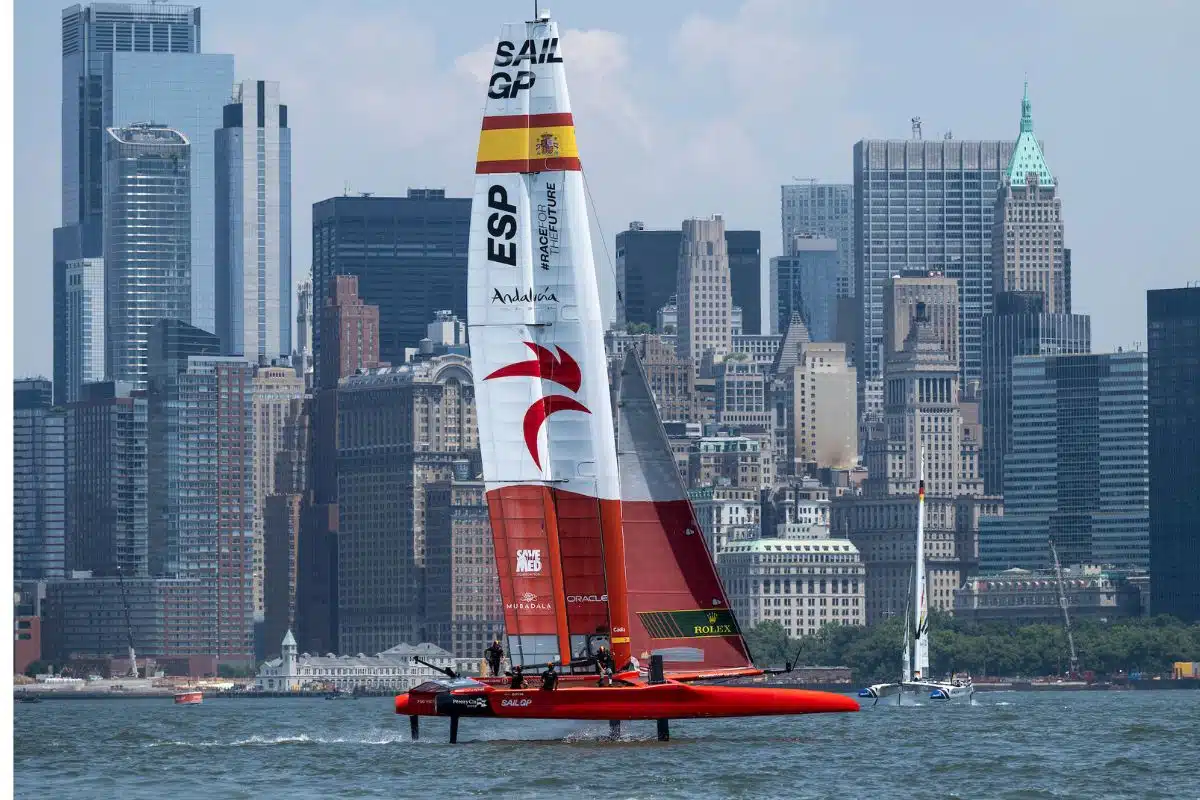
Would you like to sail on a boat designed by your uncle Marcelino?
(Laughs) Obviously, it would be amazing to work with him at some point, to align our careers. I don’t know his future plans; we haven’t talked about it. Marcelino has been giving it his all for many years now…
How intense was the SailGP final race in San Francisco?
We approached it trying to do our best on the first day, but we struggled with our starts. We knew if we finished fifth or sixth, and if the French didn’t perform exceptionally, we’d make the final. But things got really complicated. We finished the first day in seventh, but the top four were too far ahead in points to catch up in the last two races. The French were ahead, but several teams were close in points, and it was more likely that they’d lose positions than we’d gain them.
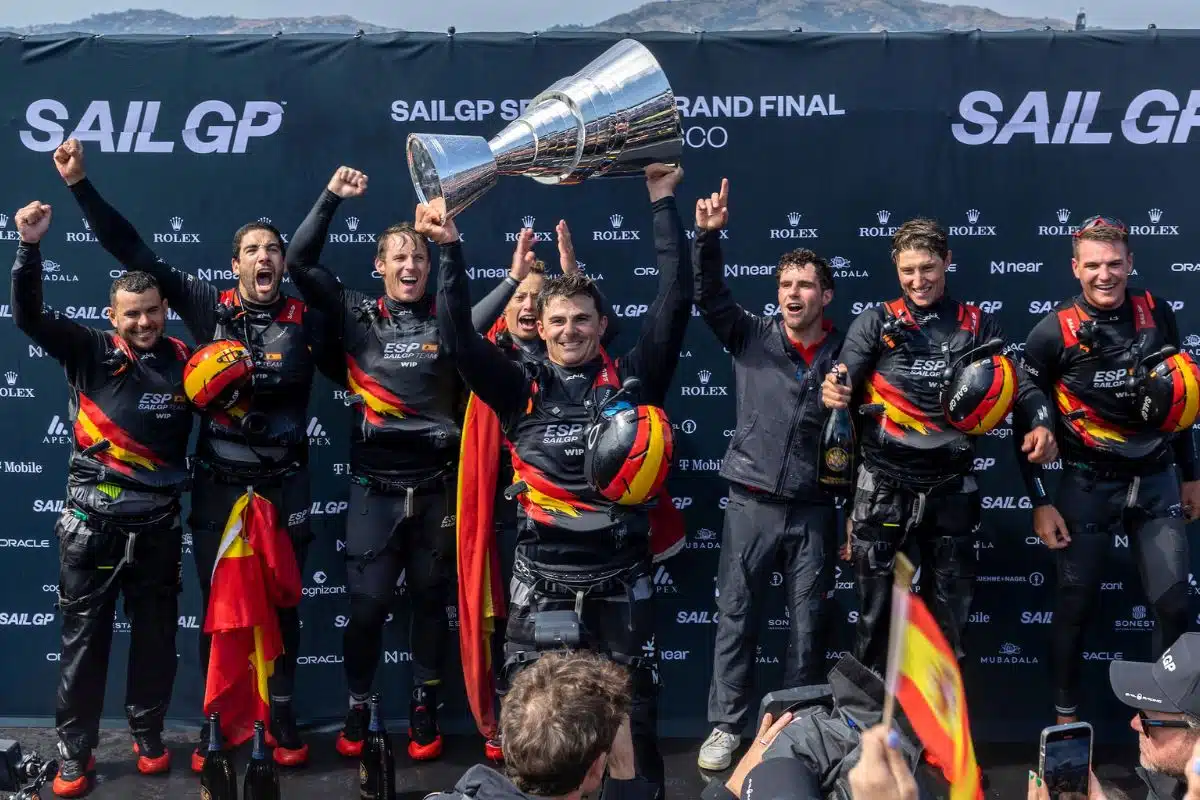
What was your strategy for the second day?
On the second day, we decided to disrupt the French as much as possible to force them to lose positions. However, we knew they were very strong in those conditions and one of the best teams. In the first race, we managed to get them off to a bad start, but it was incredible how both teams worked their way back through the fleet to finish ahead. In the second race, they made an unforced error, which took them out of contention.
When you earned a spot in the final, did you reset or already have a plan in place?
We were quite clear on how to approach the final three-way race. There’s more space at the start, and the most important thing is to start sailing at maximum speed. With more space, it’s likely all three boats would achieve that, so being close to the favored side of the line is crucial. We had a strategy that allowed us to be on either side, and during the approach, we realized that the other two couldn’t reach the windward side at full speed, so they aimed for the pin. We ended up alone on the windward side and had to adjust the timing to maximum speed. We did it and reached the first buoy with no issues. Fortunately, we had four days of training to work on some weak points, like speed and maneuvers in such a large course as San Francisco. We improved a lot technically to stay ahead after our great start.
What was it like crossing the finish line?
Crossing the line was pure ecstasy, an explosion of emotions. We believed it, yet we didn’t. After everything we’d gone through this season, it was even more incredible. In my opinion, we started with a low technical level, but we were able to learn a lot, and that’s what I’m most proud of about the team. I was almost new to steering the boat, and Joel (Rodríguez) was debuting as flight controller. By the end of the season, we had a boat capable of competing against anyone. We had tough moments—in Dubai, it seemed like our chances were slipping away, and in Canada, we barely missed the final. The Saturday night in San Francisco, our chances looked very slim. That’s why the explosion of emotions was so strong. The Kiwis and Australians have a lot of experience in this boat and America’s Cup boats with foils, but we always believed in ourselves.
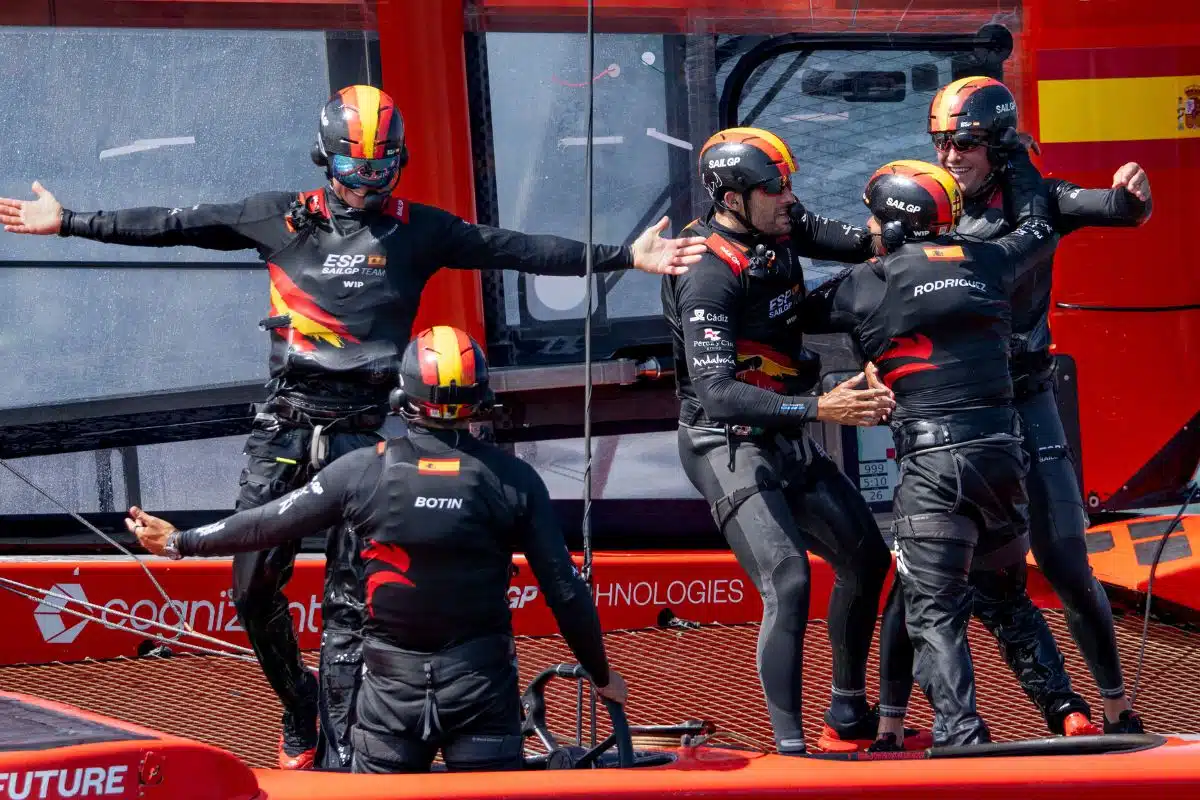
Does competing against Peter Burling and Tom Slingsby in SailGP feel intimidating?
More than that, it’s hugely motivating to compete against two of the best sailors right now. I’ve competed against Peter in the 49er, and I’ve followed Tom’s career—both have been idols of mine. The opportunity to race against them in the same boat is an enormous motivation, and to beat them, you have to be perfect. We already faced them successfully in the Bermuda final, which gave us confidence for the super final.
Is the continuity of the Spanish team in SailGP secured?
We’re still working on it. SailGP has experienced a massive boom this year in viewership, impacts, team franchise sales, etc. The league’s increased exposure is very promising for us, but until we’re at the start of the first event of the next season, we can’t say for sure that continuity is guaranteed. I’m confident we’ll achieve it.
Has winning the gold medal in Marseille fulfilled a lifelong dream?
Yes, it has. Ever since I started sailing at seven years old, it was a dream. I’ve worked for many years with the goal of achieving it, and to finally do so is incredible. In the same year, we’ve achieved two major goals. It’s been an intense month. I spoke with Flo (Florian Trittel) before we left for San Francisco from Marseille, where we spent a few days training. I told him, “What a month lies ahead for us.”
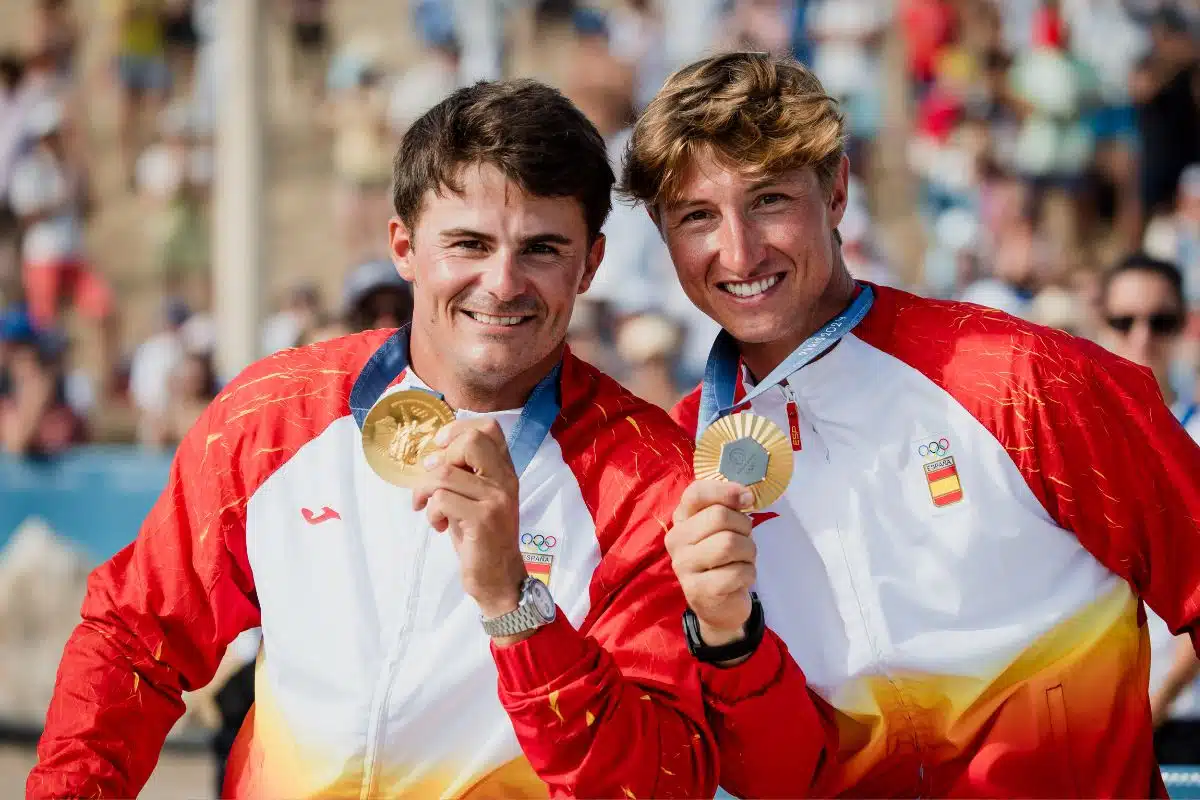
Would a bit more wind in Marseille have made things easier?
I think so. Light wind is our weakest condition, but other teams also sail better in medium and strong winds. One of our strengths is that we can handle a wide range of conditions in a championship. There are specialists for light, medium, or strong winds, but we can defend ourselves in all of them, making us more versatile.
Have you watched the medal race video?
I’ve seen a few highlights, but not the entire race yet.
You should, it was the perfect race!
(Laughs) It all went smoothly, but the day before we didn’t have a perfect race. We had that great third day, but the next day we had two bad races. In the last race before the medal race, the wind picked up, and they changed the course, so we had to defend ourselves from the Kiwis and stay in the lead for the decisive medal race. It’s very important to start the medal race as the leader, especially with such a fierce battle for the medals. There was enormous tension.

Tell me about Flo.
He’s an incredibly talented sailor. He has a special feel for understanding the boat, whether with the SailGP wing or in the 49er, and he always manages to give the boat an extra edge. As a team, we get along very well, and we have a similar vision, which is crucial for making decisions. He has incredible potential, and when he’s focused, he’s really connected. His ability to concentrate is impressive.
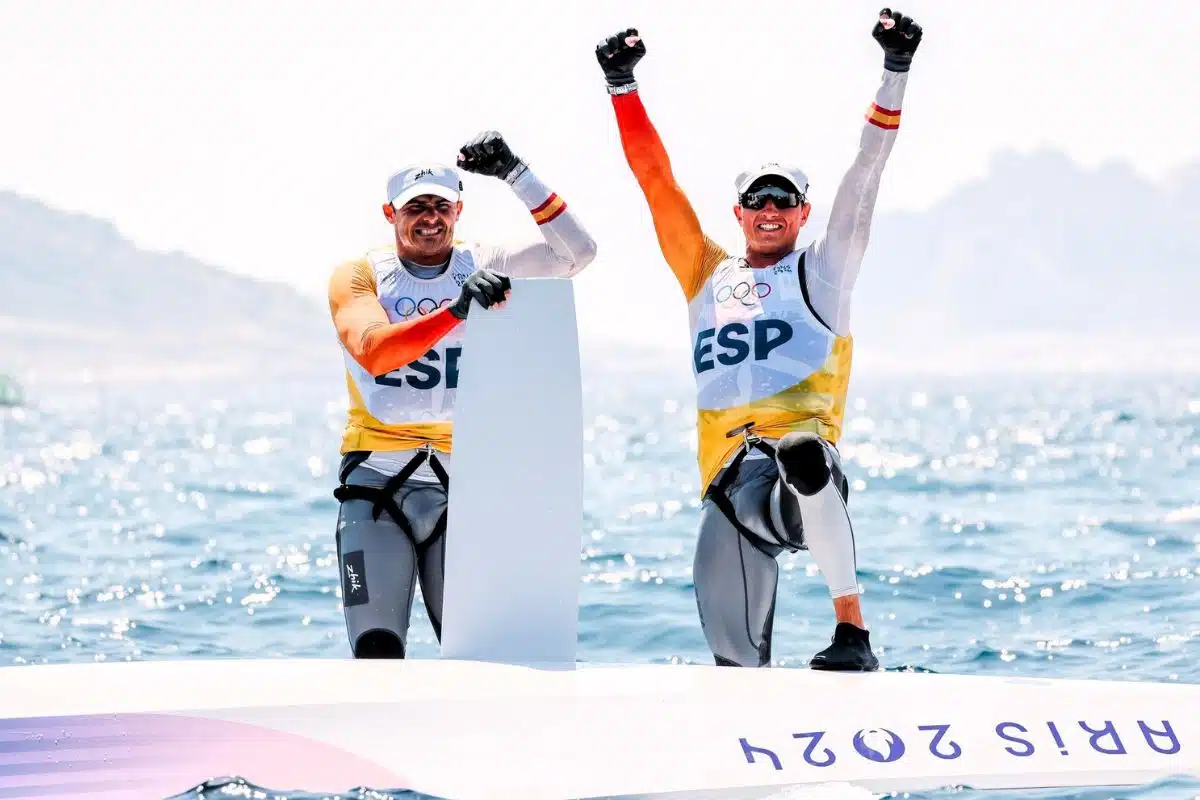
The Olympic campaign is very demanding, and you both share the SailGP campaign as well.
We spend over 200 days together each year, but we’re still eager to continue and do another Olympic campaign. We need to take some time and see how we want to approach our lives. It’s not ruled out, but we haven’t decided to go full throttle yet. We know the level of commitment and dedication required. To make the decision, we both need to be clear that we’re willing to make sacrifices because if we do it, it will be to go for a second medal. Beyond the 49er, we want to continue in SailGP, and personally, I want to start sailing in the Moth. It’s an incredible boat that offers a lot of technical development, and that appeals to me a lot. I haven’t considered competing in other circuits until I resolve these other priorities.
Lastly, why do you often struggle with starts in SailGP?
Clearly, the starts have been our weakest point. We need to improve in this area. I’m the one responsible for the starts, and I need to better understand the dynamics in fleet races and also work more on boat-to-boat maneuvers. Throughout the season, we’ve tried to be conservative to avoid risky situations with other.
Written by © TURISKI. Todos los derechos reservados. Read the original article in Spanish here:

